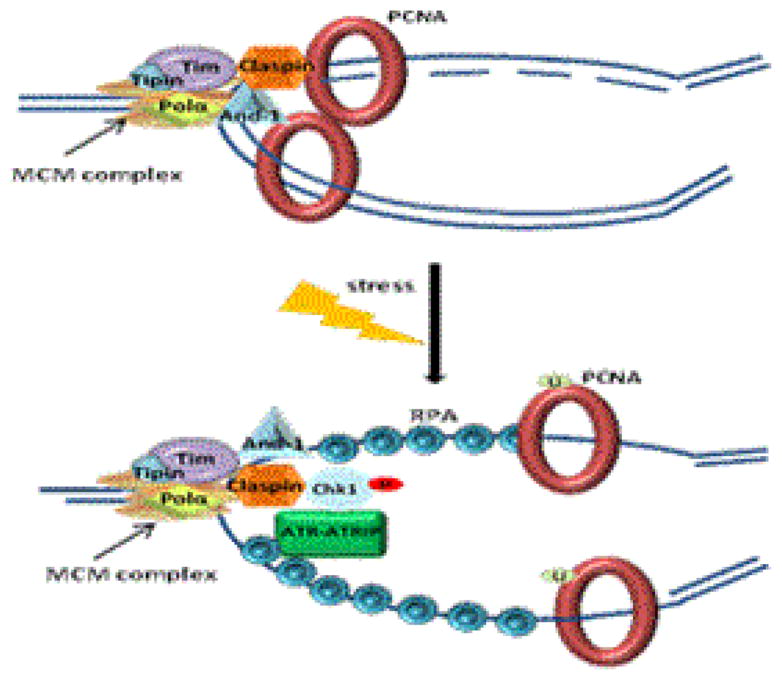Maintain Genomic Stability: Multitask of DNA Replication Proteins.
Transcriptomics: open access
Pub Date : 2015-01-01
Epub Date: 2015-01-31
DOI:10.4172/2329-8936.1000e108
引用次数: 2
Abstract
Maintenance of genomic stability is critical for living organisms because it is crucial for cell survival and development, and it prevents the development of deleterious mutations. Overriding this control will cause genomic instability, a hallmark of cancer. The genome is highly vulnerable to damage, especially during DNA replication because chromosome is decondensed and the replication forks are extremely sensitive to DNA damage agents. The eukaryotic replisome, which consists of a large number of replication fork-associated proteins, is essential for the elongation of replication forks during DNA replication. This complex contains DNA polymerases, MCM helicase, single stranded DNA (ssDNA) binding protein RPA, sliding clamp PCNA, Tipin, Timeless, Claspin, And-1, etc. In cells with DNA damage such as replication stress, replication forks are stalled Figure 1. At stalled replication forks, some of replisome components switch their role from facilitating DNA synthesis to inducing activation of DNA replication checkpoint, a signaling transduction pathway that is critical to maintain fork stability and triggers cell cycle arrest.

维持基因组稳定性:DNA复制蛋白的多重任务。
本文章由计算机程序翻译,如有差异,请以英文原文为准。
求助全文
约1分钟内获得全文
求助全文

 求助内容:
求助内容: 应助结果提醒方式:
应助结果提醒方式:


